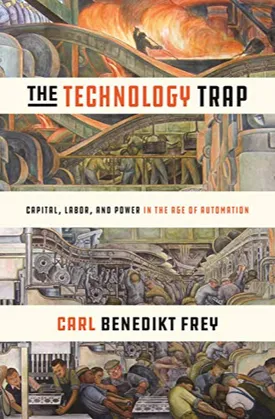Carl Benedikt Frey
Carl Benedikt Frey is an Oxford University researcher specializing in the effects new technology has on the structure of the job market. He is the author of two books: The Technology Trap: Capital, Labor, and Power in the Age of Automation, and Jobs in the Robot Age.
Frey is a Fellow at the Oxford Martin School, where he leads the programme on Technology & Employment. He studied economics at the University of Oxford and the University of California at Berkeley, where he gained his PhD.
Frey’s book, The Technology Trap, explores the costs and benefits of technology over the past two centuries. Frey controversially claims that the industrial age has led to both winners and losers in the economy, and that the overall benefits of technology have been spread unequally.
Frey’s work focuses on the intersection between technology, society, and policy. He is an advocate of well-informed and forward-thinking policy to regulate emerging technologies. He also promotes collaboration between different stakeholders in technological innovation, to ensure that competition and innovation remain healthy.
In Frey’s book, Jobs in the Robot Age, he examines the impact of artificial intelligence and automation on the job market. He argues that as technology advances, certain types of jobs will vanish, and other types of jobs emerging that require higher skills. He proposes that policy makers need to implement policies befitting the rapid technological advancements and changing job market.
Frey’s work has been cited in various publications, such as The Guardian, The New York Times, and Le Monde. He has appeared in interviews on BBC News, Newsweek and The New Yorker.
In 2008, Frey was appointed a Fellow of the Royal Economic Society. He has also received awards from the British Academy and Friedrich Ebert Stiftung.
Carl Benedikt Frey is an important thinker and leader on the technological and economic issues of the future. His two books cover crucial topics in the discussion of the present and upcoming global economy, and are essential reading for anyone interested in automation and its effects. His research provides an important contribution to the debate on how policy should approach the fundamental change the potential of automation holds for the job market.

